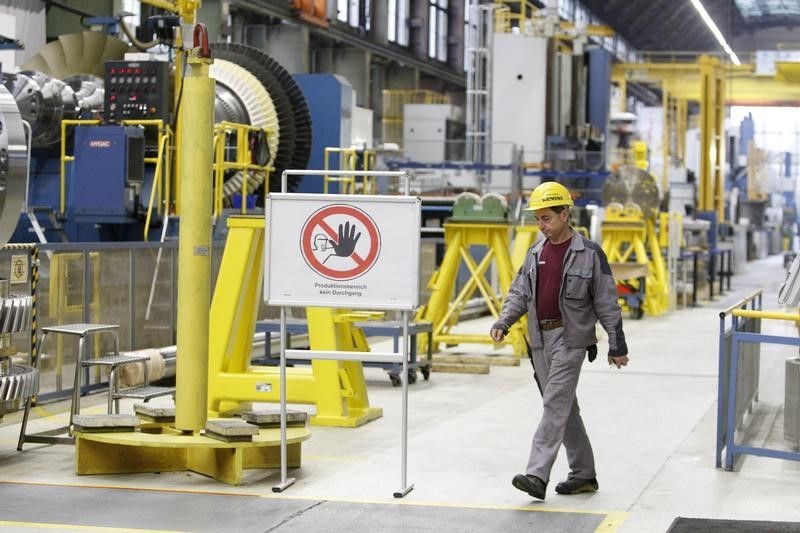Investing.com - The euro zone's economy is set for another quarter of near-stagnation after an uncertain-looking stabilization in February, according to closely watched business surveys released Thursday.
The region's services sector accelerated to a three-month high in February, but manufacturing activity shrank at the fastest pace in almost six years as Brexit woes and worries over slowing growth in Italy and Germany continues to put pressure on the bloc.
"The survey data suggest that GDP may struggle to rise by much more than 0.1% in the first quarter." said Chris Williamson, Chief Business Economist at IHS Markit.
"Germany is on course to grow by 0.2%, buoyed by its service sector, but France looks set to stagnate or even contract very slightly. The rest of the region is meanwhile suffering its worst spell since late-2013, with growth having slipped closer to stalling in February," he continued.
Markit said that its flash Euro Zone Composite Output Index, which measures the combined output of both the manufacturing and service sectors, rose to 51.4 this month, improving from 51.0 in January.
Economists polled by Investing.com had forecast a reading of 51.1.
The flash services purchasing managers’ index increased to 52.3 this month from 51.2 in January, above expectations of 51.5.
The preliminary euro zone manufacturing PMI fell to a 69-month low of 49.2 from 50.5 in January, due largely to a sharp drop in Germany. Analysts had expected a reading of 50.3.
On the index, a reading above 50.0 indicates industry expansion, while one below it indicates contraction.
The slowdown in the euro zone has led the European Central Bank to consider fresh stimulus measures, as the bloc continues to weaken. The ECB is expected to cut its growth forecasts in March and is discussing issuing targeted long-term refinancing operation loans to help stimulate the economy, ECB officials have said.
